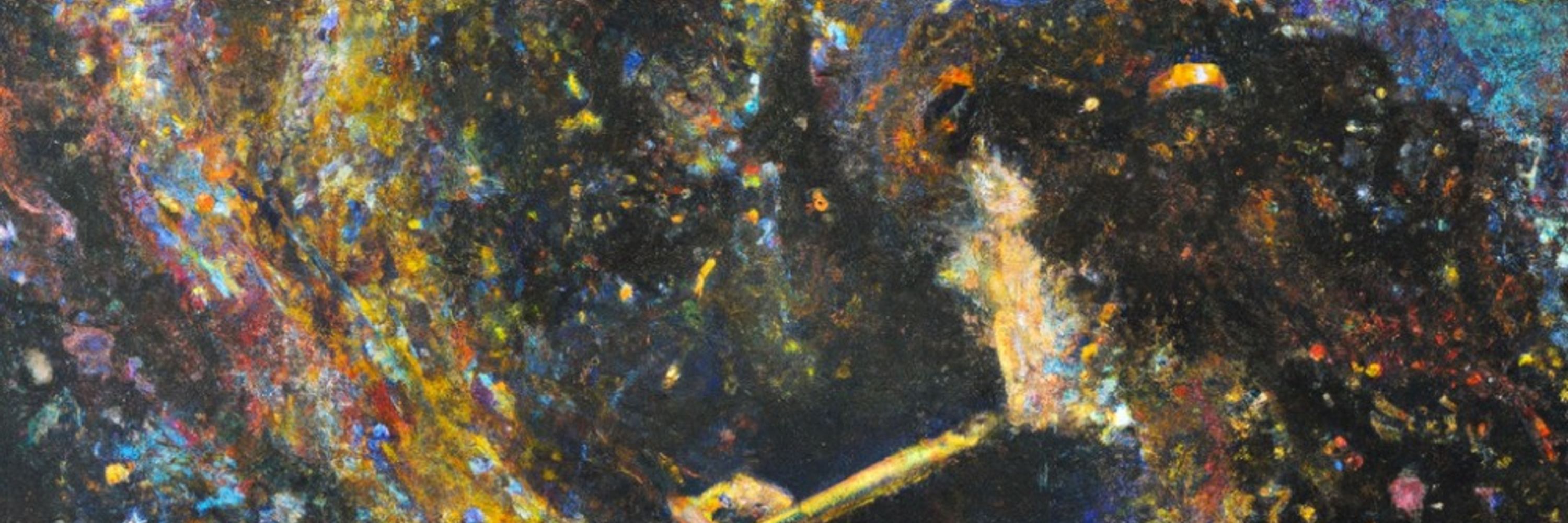
Professor of Creative Pedagogies | Poet | Game Designer | Slow AI
#SciComm #HigherEd #Poetry #GenAI
https://theslowai.substack.com/
https://linktr.ee/sam.illingworth

🎲 Latest Paper | Student empathy through play: doi.org/10.3390/bs15...
📖 Latest book | The poetry of physics: doi.org/10.1201/9781...
🤖 Substack | Slow AI: theslowai.substack.com
#SciComm #Poetry #AI #SciArt #SlowAI
My short piece argues for a culture of Slow AI, one that values reflection, care, and collective scrutiny over speed.
Read it here: rdcu.be/eLZhH
#SlowAI #Ethics #HigherEducation #GenAI #SciComm 🧪

Long-term data show Australia’s tropical forests have shifted from storing carbon to emitting it, as rising heat and extreme weather increase tree deaths.
🔗 www.nature.com/articles/s41...
#ClimateCrisis #SciComm 🧪

Analysing 4 million tweets on China’s anti-COVID protests, researchers found Western populists reframed the events to claim democracies act like dictatorships.
🔗 www.nature.com/articles/s41...
#Politics #SciComm 🧪
Reposted by Ryosuke Nakadai

A new model suggests that fear of supernatural punishment for harming nature can evolve to curb overuse of resources, helping societies live sustainably.
🔗 www.nature.com/articles/s41...
#Sustainability #SciComm 🧪
A new review highlights how adding probiotics to dairy, grains, and plant-based foods can boost gut health and flavour, but stability and regulation remain challenges.
🔗 doi.org/10.3390/food...
#FoodScience #SciComm 🧪

New research finds that some endorse disproven claims as a show of “symbolic strength,” valuing independence over truth, and making fact-checks seem weak.
🔗 doi.org/10.64628/AAI...
#FakeNews #SciComm 🧪

Fossil and lab evidence show early hominids were exposed to lead for over 2 million years, which may have shaped brain genes linked to speech and behaviour.
🔗 doi.org/10.1126/scia...
#Lead #Evolution #SciComm 🧪

Using spatial transcriptomics, scientists found planarian stem cells rely on signals from nearby gut cells (not fixed niches) to drive powerful regeneration.
🔗 www.cell.com/cell-reports...
#FlatWorms #SciComm 🧪
Reposted by Efrén O. Pérez, Richard Shaw

A new study finds overall psychological functioning peaks between ages 55–60, when reasoning, emotional balance, and judgement combine at their best.
🔗 doi.org/10.64628/AA....
#Psychology #SciComm 🧪

Using a new definition that includes body shape as well as BMI, obesity rates in 300,000 US adults rose by 60%, revealing hidden health risks missed by BMI alone.
🔗 doi.org/10.1001/jama...
#Obesityh #SciComm 🧪
Surveying 941 US school food authorities, researchers found ending universal free meals led to lower participation, more stigma, and rising meal debt.
🔗 www.jneb.org/article/S149...
#PublicHealth #SciComm 🧪

Australia’s rare Rhizanthella orchid lives, feeds, and flowers entirely underground, relying on a fungus and bush roots to survive, now near extinction.
🔗 www.theguardian.com/science/2025...
#Botany #SciComm 🧪

Genetic data from 124 species show modern toads began in South America 61 million years ago, spreading globally thanks to new defences like toxic glands.
🔗 doi.org/10.1098/rspb...
#Evolution #SciComm 🧪

A new model shows that dopamine drugs like bupropion work differently depending on the time of day, suggesting dosing should align with body rhythms.
🔗 doi.org/10.1371/jour...
#Neuroscience #SciComm 🧪

A UK trial with 199 mothers found that 10 weeks of group singing reduced postnatal depression symptoms for up to 8 months and was low-cost and well liked.
🔗 www.kcl.ac.uk/news/group-s...
#MaternalHealth #SciComm 🧪

A trial of 115 adults found that heart rate variability biofeedback cut cravings, negative mood, and substance use by over 60%, supporting recovery efforts.
🔗 doi.org/10.1001/jama...
#Addiction #Recovery #SciComm 🧪

A trial of 115 adults found that heart rate variability biofeedback cut cravings, negative mood, and substance use by over 60%, supporting recovery efforts.
🔗 doi.org/10.1001/jama...
#Addiction #Recovery #SciComm 🧪

Studies across 30+ countries show youth crime has dropped over recent decades, likely due to less unsupervised socialising and lower alcohol use.
🔗 www.mpg.de/25556841/you...
#YouthJustice #SciComm 🧪

In a survey of 800 Canadian adolescents, over a third said climate change affects their mental health, citing fear for the future and distress for nature.
🔗 doi.org/10.1371/jour...
#MentalHealth #SciComm 🧪

A US Medicare study found the recombinant shingles vaccine cut infection risk by over 50% in older adults, including those with weak immunity. Two doses worked best.
🔗 doi.org/10.7326/ANNA...
#Vaccines #SciComm 🧪

Scientists say global coral die-offs mark Earth’s first climate 'tipping point', warning that recovery may be impossible without cooling the planet.
🔗 global-tipping-points.org
#ClimateCrisis #SciComm 🧪

A new @jama.com report calls for better testing, monitoring, and shared oversight of medical AI tools to ensure they truly improve health for everyone.
🔗 doi.org/10.1001/jama...
#AI #SciComm 🧪

Cambridge scientists created embryo-like structures that formed early human blood and heart cells, a step toward patient-matched regenerative therapies.
🔗 www.theguardian.com/science/2025...
#StemCells #SciComm 🧪

During the 2024 total solar eclipse, over half of bird species briefly sang as if it were morning, revealing how light shifts shape behaviour.
🔗 doi.org/10.1126/scie...
#Birds #SciComm 🧪

A Finnish study found that prenatal exposure to PFAS chemicals was linked to subtle brain changes in 5-year-olds, including regions for movement and vision.
🔗 www.sciencedirect.com/science/arti...
#PFAS #SciComm 🧪

Data from 11 years of satellites show the weak South Atlantic field is expanding, while Canada’s strong field is shrinking and Siberia’s is growing.
🔗 www.sciencedirect.com/science/arti...
#EarthScience #SciComm 🧪

Surveying over 2,000 adults, researchers found that visiting parks or watersides boosts happiness for everyone, including those with depression or anxiety.
🔗 doi.org/10.1080/1743...
#MentalHealth #SciComm 🧪

An analysis of 48,000 chatbot conversations found many users felt dependency, confusion, and emotional strain, raising concerns about AI-induced digital entrapment.
🔗 www.sciencedirect.com/science/arti...
#SciComm #AI #MentalHealth 🧪

A major global study from @thelancet.com shows infectious diseases keep falling, but chronic conditions like diabetes, heart disease, and anxiety are rising worldwide.
🔗 www.thelancet.com/journals/lan...
#GlobalHealth #SciComm 🧪

A study across Southeast Asia found most newborn sepsis cases were caused by drug-resistant bacteria, with Klebsiella and Acinetobacter showing especially high resistance.
🔗 www.thelancet.com/journals/lan...
#SciComm #Health #AMR 🧪

